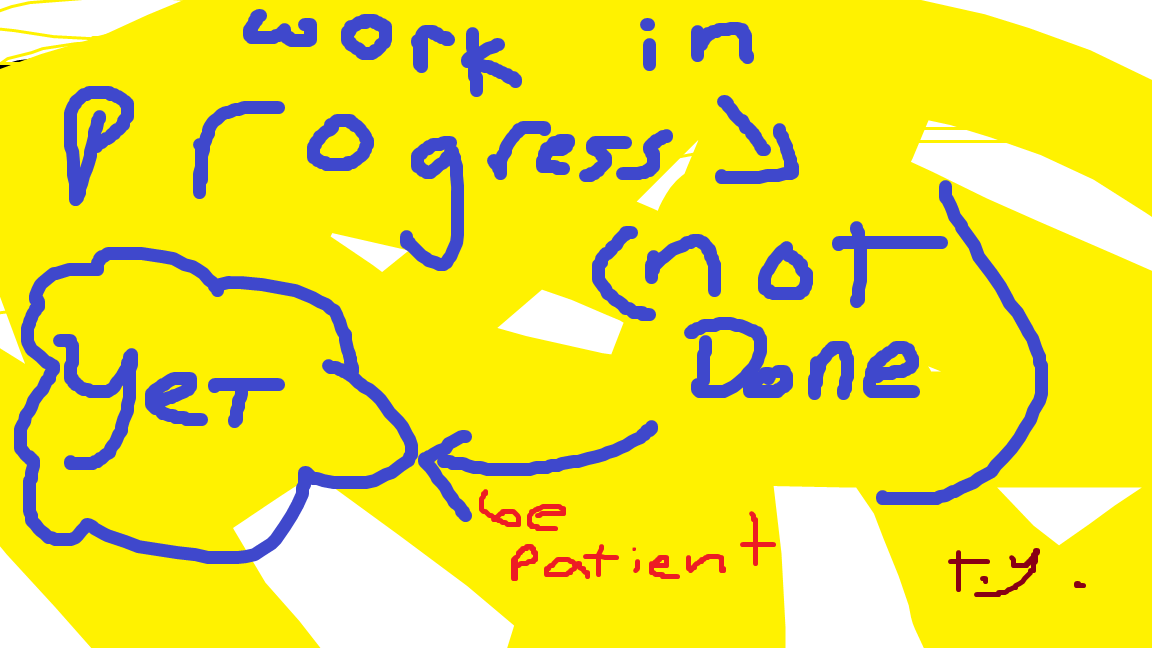
Neurodivergent

Table of Contents
- Introduction
- General Information
- Flags
- Flags: ADHD Combined Type Flag
- Flags: ADHD Impulsive/Hyperactive Type Flag
- Flags: ADHD Inattentive/Distractible Type Flag
- Flags: Anxiety Flag
- Flags: Autism Flag
- Flags: Bipolar Flag
- Flags: Dyscalculia Flag
- Flags: Dysgraphia Flag
- Flags: Dyslexia Flag
- Flags: Neurodivergent Flag
- Flags: Tourette's Syndrome Flag
- External Links

Introduction
Statistically speaking, neurodivergent people are more likely to be transgender than those who are neurotypical. That being said, people who are transgender are not more likely to be neurodivergent than those who are cisgender. If you had a large group of people who were transgender, a small percentage would likely be neurodivergent. If you had a large group of neurodivergent people, a larger percentage would likely be transgender.
Why is this? As of right now, I cannot provide a clear reason for this phenomena. Perhaps it is due to the rigours gatekeeping surrounding access to medical gender affirming care. Patient seeking out surgeries or hormones are often required to see a gender therapist to assess for any other explanation for symptoms. To make sure that they really want the care that they seek. Due to the nature of this process, more transgender or gender-non-conforming patients are more likely to end up getting a diagnosis for any other conditions that may be present.
While it is possible that having some mental variations can result in gender non-conformity, it is hard to know for sure. Studies on the topic are somewhat limited. Some neurotypical transgender people would discourage studies on the topic, finding it offensive to be lumped in with "the freaks and the weirdos" or whatever you want to call those who do not strictly adhere to society's expectations.
Some neurodivergent transgender people will find themselves barred from gender-affirming care under the assumption that they are unable to consent to or understand the treatment (regardless of how true that assessment may always be. Some trans people fear that abelist doctors and societies will altogether ban gender-affirming care if a link is found to any neurological or developmental disorders.
The idea that we as neurodivergent transgender people are unable to understand who were are due to being different is increasingly popular, thanks to the increasing popularity of TERF rhetoric. Neurodivergence can cause someone to have different perceptions of gender. It does not make anyone more or less trans. Fully informed consent should be available for everyone, regardless of how "normal" they are.

General Information
Neurodivergent is a broad word referring to when someone's brain is different from what is considered neurotypical. Neurodivergency encompasses various disorders including (but not limited to); sensory processing disorders, autism spectrum disorder, dysgraphia, down syndrome, dyscalculia, dyspraxia, intellectual difficulties, attention-deficit hyperactivity disorder (ADHD), bipolar disorder, obsessive compulsive disorder (OCD), DiGeorge syndrome, social anxiety, williams syndrome, tourette syndrome, Prader-Willi syndrome, dyslexia, and intellectual disabilities.
This page is a work in progress. At some point, all of the neurdivergent disorders listed below will have their own pages with information (such as how they tie into gender) but for now, have these flags.

Flags

ADHD Combined Type Flag


ADHD Impulsive/Hyperactive Type Flag


ADHD Inattentive/Distractible Type Flag


Anxiety Flag


Autism Flag


Bipolar Flag


Dyscalculia Flag


Dysgraphia Flag


Dyslexia Flag


Neurodivergent Flag


Tourette's Syndrome Flag


External Links

Additional Resources
- Australian Disability Network - What is Neurodiversity?
- Cleveland Clinic -Neurodivergent
- Gender Specialist: 04/19/2025: The Intersection of Gender, Sexuality, and Neurodivergence
- Harvard Health: Nicole Baumer, MD, MEd & Julia Frueh, MD; 12/23/2021: What is neurodiversity?
- itch.io - 404luxio - tiny pixel pride flags
- spectrum news: Laura Dattaro: 09/14/2020: autism & gender diversity overlap
- The Swaddle: Devrupa Rakshit: 04/28/2023: The Link Between Neurodivergence and Queerness, Explained
- Trans Language Primer - Gendervague
- Trans Language Primer - Neurodiversity
- Trans Language Primer - Neurodivergent
- Trans Language Primer - Neurogender
- Trans Language Primer - Neurotypical
- Very Well Mind: Ariane Resnick, CNC: 11/02/2023: What Does It Mean to Be Neurodivergent?


